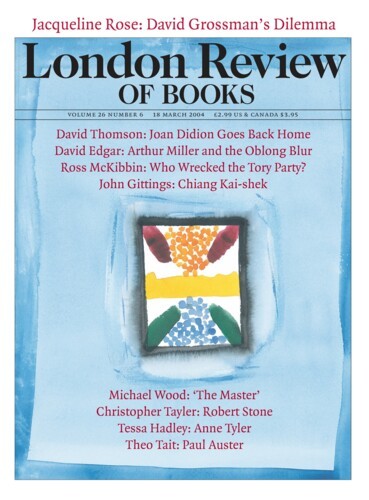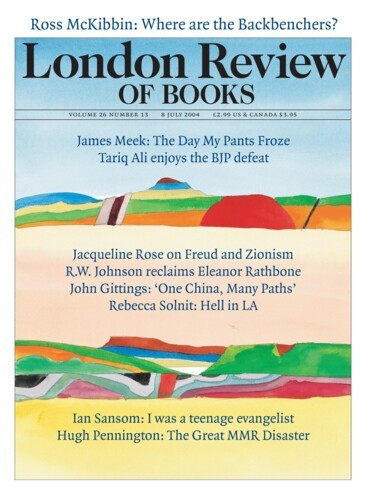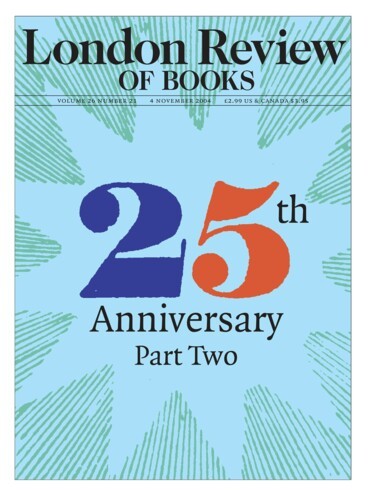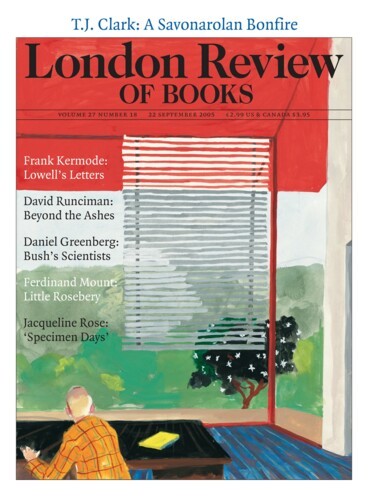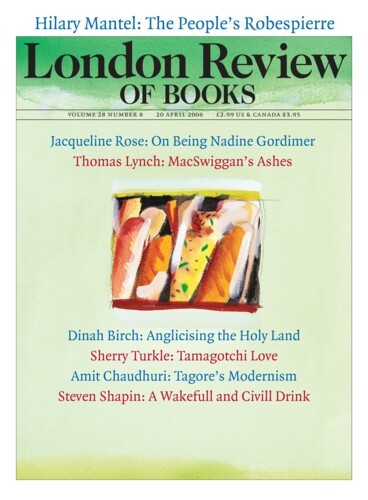Failed State: David Grossman
Jacqueline Rose, 18 March 2004
In David Grossman’s 1998 novel, Be My Knife, an antiquarian book-dealer starts a passionate correspondence with a woman whom he has barely caught sight of across a room. The unlikely circumstances of their relationship, its unusual fusion of intimacy and distance, allow them to say, or rather write, things which neither of them has ever admitted before. Lost to each other and...
